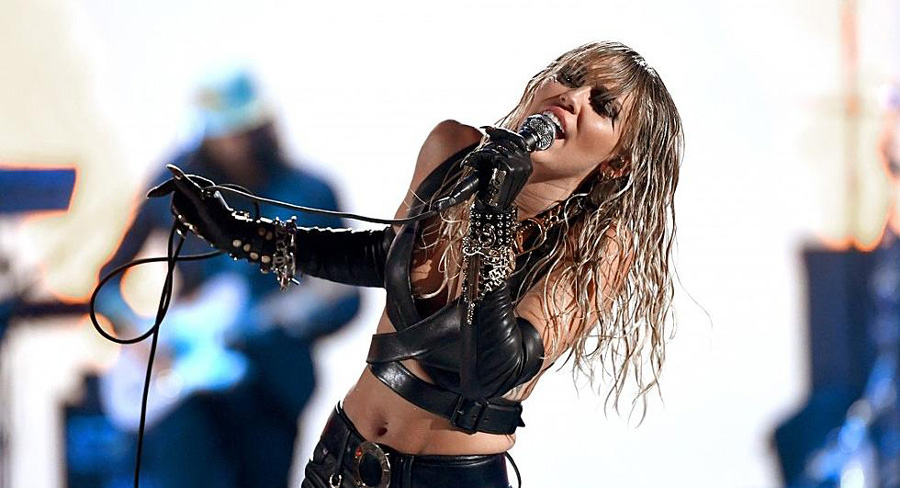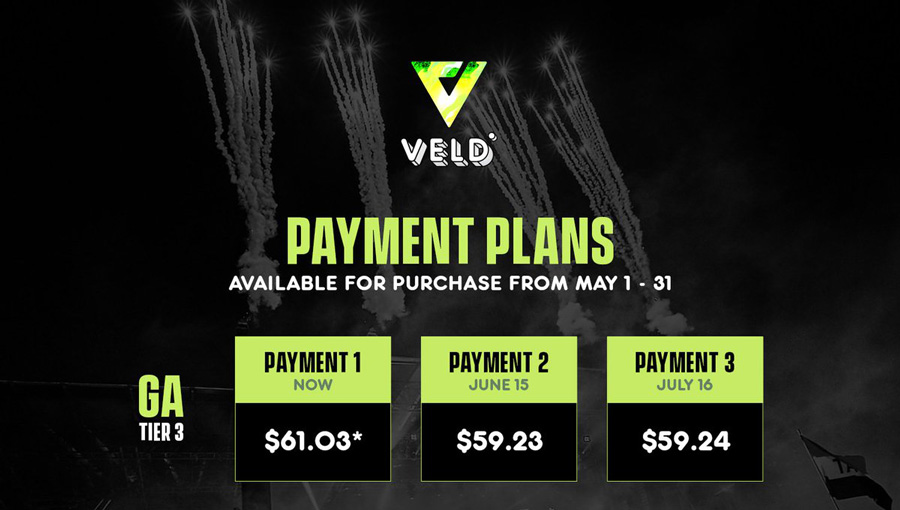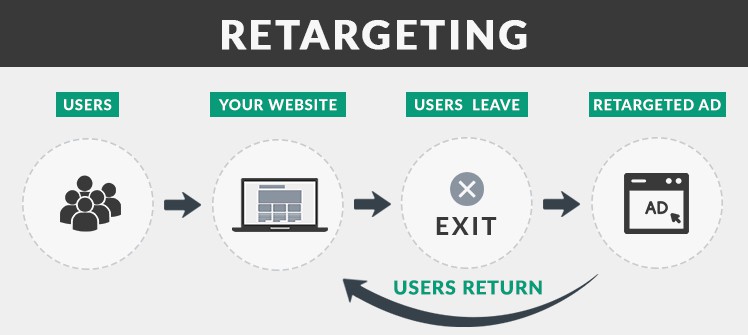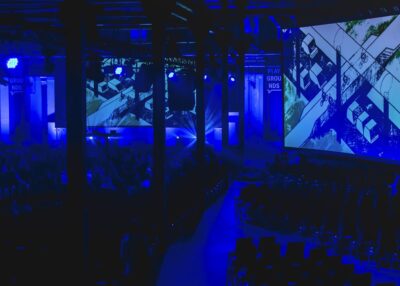6 Strategies for Advertising and Selling Expensive Tickets Online
While every event is different, everyone has the same goal: sell more tickets!
If you are selling expensive tickets, there are different strategies you can use to get those tickets sold, becoming a step closer to having a sold-out event.
1. Promote quality not the quantity
When promoting a high-value item, such as expensive tickets, remember it’s as much as customers buying then it is you selling.
If your event is more expensive, sell it that way ... a high quality, fancy, can’t-miss event.
Explain what people are getting for their money and why it’s worth paying a heavy price. Make your customers understand your reasoning behind the price tag.
Reasons for paying for an expensive event ticket:
1. The talent (Beyonce, Tim McGraw, Miley Cyrus,…people can expect to pay more for these artists). Don’t sell the tickets, but sell the artists! A once in a lifetime chance coming to your city.

2. Opportunities. Depending on your event, you might give guests opportunities they never could've had. Think of conventions and comic-cons.
You’re meeting the characters and artists you grew up watching on t.v or in comic books. When would you ever get a chance like this again. An event this special, you would pay whatever it takes to attend right?
3. Multi -day event. Most festivals come with a heavy fee.
Why?
Many reasons, but one, they are for multiple days!! If you look at the price of a ticket to how many days you are really getting, it's not that bad. That is what you need to sell!
3. Experiencing multiple artists. Think of the Academy of Country Music Awards.
Tickets go for anywhere from $300 if you’re lucky to $5000!! Who would possibly attend a show for that amount of money?
Easy, many people. Why? 30 + country artist performances, 100 + country artists in attendance… that you can sit by ... what!!!!! It now became a steal!
2. Advertise the perks
Like we just mentioned, advertise the heck out of the perks! Your event is a once-in-a-lifetime opportunity, so it’s worth the high price tag.
You want to highlight what makes your event unique, whether it’s the artists or the overall event experience.
Use your top marketing channels to promote this so your message doesn’t get missed; blogs, social media, pr, etc.
Advertise any perks you are throwing in if someone purchases a ticket (VIP packages, group discounts, drink tickets, etc.). A video teaser can be a great way to advertise the event as well. In the teaser, be sure to answer common questions about the event, such as who is performing and/or what it’s about to get people excited.
Your checklist to advertising your top-notch event tickets:
- Release promo videos/ads
- Put our press releases
- Blog leading up to the event (artist interviews, special guests, sneak peaks, about the venue, etc.)
- Use social media to encourage engagement early one (ticket giveaways, discounts, live streaming of behind the scenes, artists shout outs, etc.)
- Exclusive interview
-
Work with influencers; people involved or relevant to your event to do some promotion on their end

3. Payment plans
With an expensive ticket, it helps to have a payment plan. Most music festivals are now offering this as an option and it will work for your event. Payment plans allow people to attend your event without the need to pay all the money upfront.
How do payment plans work?
Not everyone can afford to pay in full.
If you’re offering expensive tickets with the only option being to pay up front at one time, you are likely to lose out on sales for the people that need to wait for their next check.
Having a payment plan not only opens the door to a bigger target market that couldn’t afford to pay the initial price up front, but you’re also showing you are flexible by offering different plans.


4. Involve your attendees
One of the biggest impacts on someone’s decision to attend an event is word-of-mouth recommendations.
About 66% of event-goers say that friends were the main reasons they chose an event.
This means that your existing attendees can be your biggest advocates and help increase your ticket sales, no matter the cost.
There are different ways to involve your attendees.
This can mean group discounts, which can be especially helpful lowering those expensive ticket prices. You can also set up a rewards system where attendees can collect points when they share the event and get friends to buy tickets.
They can redeem points for exclusive merchandise, free drinks, or skip-the-line access.
You can learn more about creating rewards and loyalty programs below.
5. Add new marketing channels
Research can show that the average event uses three to four marketing channels for promotion but this means there are plenty that are still untouched.
Crazy right??
Besides the big dogs (Facebook, Instagram, Twitter), here’s a list of some social platforms people overlook when promoting their event.
Tumblr (642 million MUVs)
Tik Tock (500 million MAUs)
Snapchat (255 million MAUs)
Pinterest (250 million MAUs)
Choose some new marketing channels and see how they perform.
You can then choose the platform with the best ROI and put more money behind it.
If you aren’t sure where to start, paid social media ads and search engine optimization can be a good option.
If you sell your tickets on the right social platforms with the right audience, price shouldn't be an issue.
Look at the stats below.
Out of these four social media demographics, you should be able to identify which platform correlates to your event's target market.
Also, if you are selling expensive tickets, pay attention to the income stats and degree levels.
(stats supplied by Sprout Social)
Facebook demographics: 2.27 billion monthly active users. 74% female, 62% male. 75% have a $75k+ income. 77% of users also have a college degree.
- 51% of 13-17 year olds use Facebook
- 81% of 18-29 year olds use Facebook
- 78% of 30-49 year olds use Facebook
- 65% of 50-64 year olds use Facebook
- 41% of 65+ year olds use Facebook
Instagram demographics: 1 billion monthly active users. 39% female, 30% male. 42% have a $75k+ income. 42% of users also have a college degree.
- 72% of 13-17 year olds use Instagram
- 64% of 18-29 year olds use Instagram
- 40% of 30-49 year olds use Instagram
- 21% of 50-64 year olds use Instagram
- 10% of 65+ year olds use Instagram
Twitter demographics: 68 million active users. 24% female, 23% male. 32% have a $75k+ income. 32% of users also have a college degree.
- 32% of 13-17 year olds use Twitter
- 40% of 18-29 year olds use Twitter
- 27% of 30-49 year olds use Twitter
- 19% of 50-64 year olds use Twitter
- 8% of 65+ year olds use Twitter
LinkedIn demographics: 590 million registered users. 25% female, 25% male. 45% have a $75k+ income. 50% of users also have a college degree.
- 29% of 18-29 year olds use LinkedIn
- 33% of 30-49 year olds use LinkedIn
- 24% of 50-64 year olds use LinkedIn
- 9% of 65+ year olds use LinkedIn
6. Use retargeting
Nothing is worse than having someone look at the event page and then leave without buying a ticket. This may happen more if your tickets are pricey.
You still have a chance to change their minds with retargeting.

Retargeting means presenting a follow-up message to someone who has already shown an interest.
And it works. Pixels, pieces of a computer programming code, are placedon the browsers of people who visit or visited a website, typically by the company that operates that domain.
Pixels create cookies that spur the creation of specific ads that the website visitors see after they leave the website.
The ads --which are calledretargeting ads --are basedon what products and services the website visitors saw and are designed to get them to return to the website to buy what they earlier looked at.
Retargeting for events is estimated to pay for itself six times over.
A retargeting ad can be just the push to get someone to say yes.
The key with retargeting is to instill some urgency.
For example, letting potential attendees know that if they buy a ticket right now, they’ll get 5% off. Since these people are already interested, the extra incentive can push them over the edge. Use phrases like "sale ends soon", "the clock is ticking", "almost sold out", "time is almost up", or "don't miss out".









